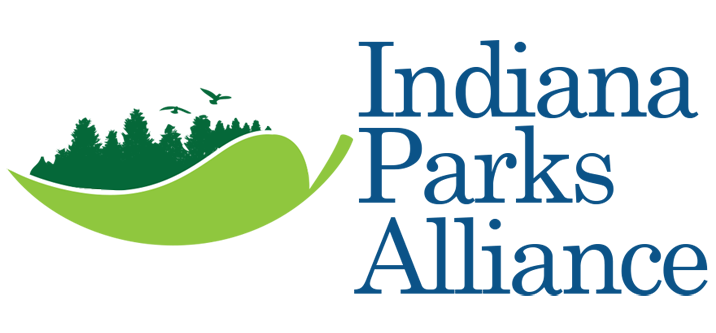State Park Spotlight – Hardy Lake
Submitted by Leslie Grow
The Dwight R. Chamberlain Raptor Center
Tucked away in Southern Indiana is the smallest reservoir property in the Indiana Division of State Parks. Hardy Lake is located in Scott County and is home to the Dwight R Chamberlain Raptor
Center. This Center takes in injured and orphaned hawks, owls, eagles, falcons and vultures for the purpose of rehabilitation and release back into the wild. Hardy Lake is the only State owned wildlife hospital in Indiana and is run through a partnership between Indiana State Parks and the 501c3 non-profit Friends of Hardy Lake. In addition to the rehabilitation of “raptors” the Center has a large collection of birds that have been determined to be non-releasable due to injuries. These educational ambassadors travel the State with the Naturalists from Hardy Lake to help teach people their importance in our environment.
Hardy Lake has been home to a wildlife rehabilitation center since 1987. In the early years the Center cared for all native wildlife. In 2001 the Center began to focus on the rehabilitation of raptors and the Friends of Hardy Lake was formed to help with the costs. On average the Center takes in 60-100 injured and orphaned birds each year and the Friends of Hardy Lake pay for costs
associated with food, veterinary bills and equipment. The non-profit group has a unique mission among all of the State Friends Groups, focusing on all of the costs associated with the animal hospital. The Friends Group holds a variety of fundraising events throughout the year. One of their best known fundraisers is their popular “All you can Eat” breakfasts held monthly from April through October.
The Dwight R. Chamberlain Raptor Center does not just help the individual animal that is hurt or orphaned but it acts as a service to the public. Most injured or orphaned wildlife is found by the public and those caring citizens reach out to rehabilitators all over the State. Many of the birds admitted to the facility are there, not due to natural injures or accidents, but from human interactions. The most common injuries are associated with vehicle collisions. Other commonproblems include barbed wire fence injuries and poisonings. Though vehicle collisions cannot often be avoided there are steps the public can take to help raptors in the wild. This public education is the mission of the resident educational raptor collection and the Naturalists at Hardy Lake. To learn more about Hardy Lake, The Dwight R Chamberlain Raptor Center and the Friends of Hardy Lake, please visit their Facebook pages or Friendsofhardylake.org
© Copyright 2023. All Rights Reserved.
Design by Natural Concepts.
